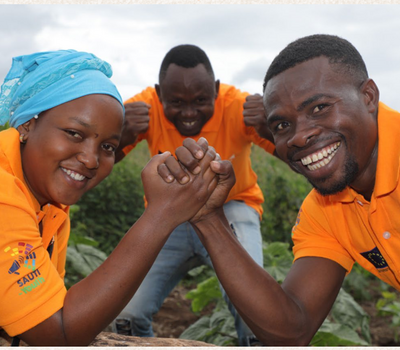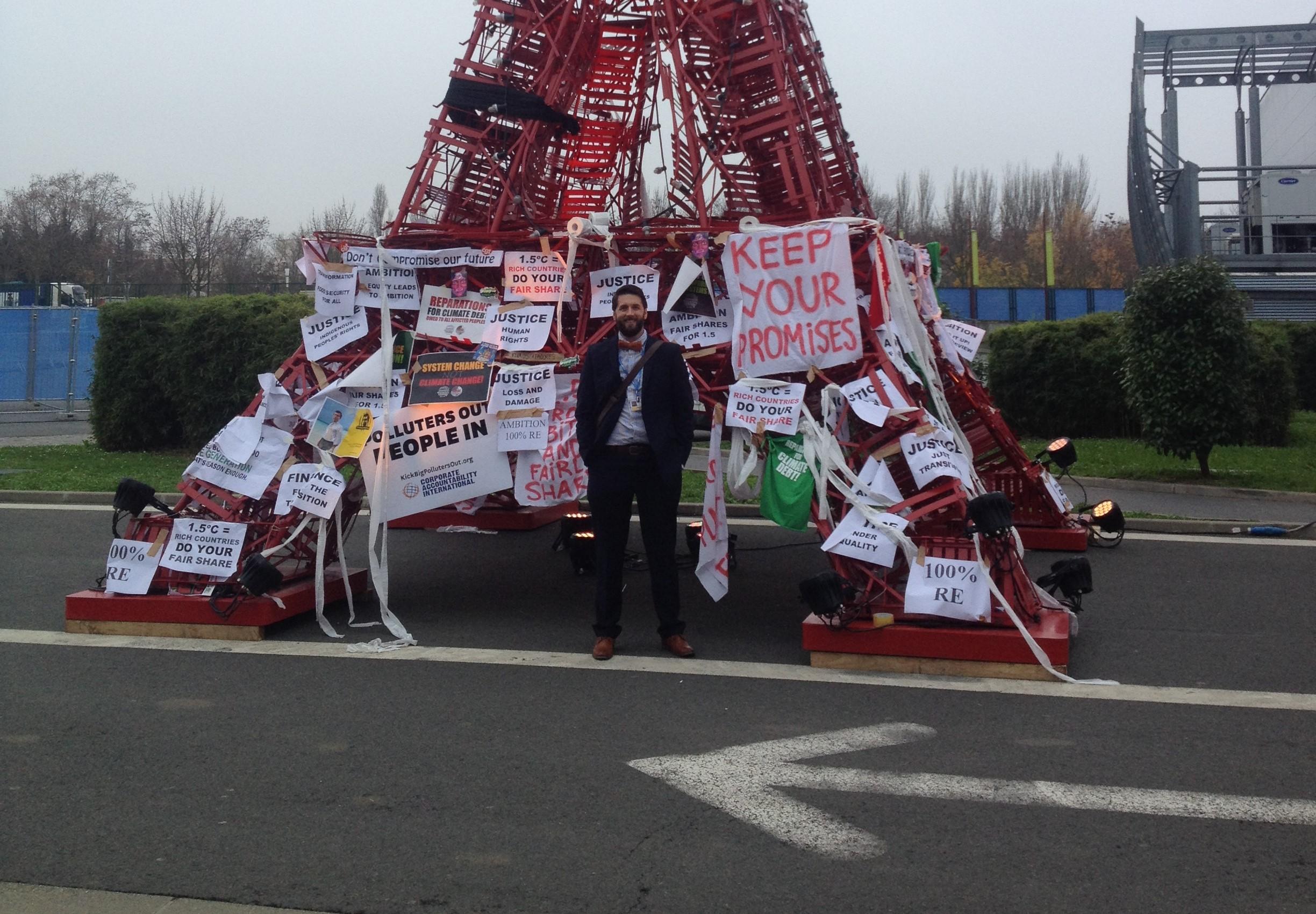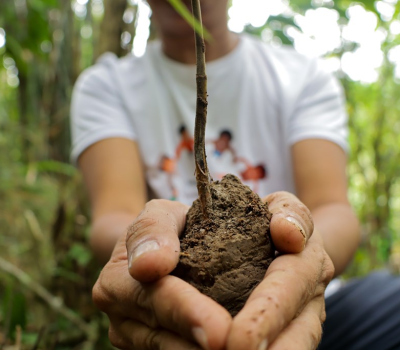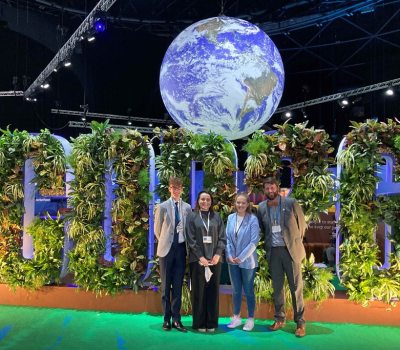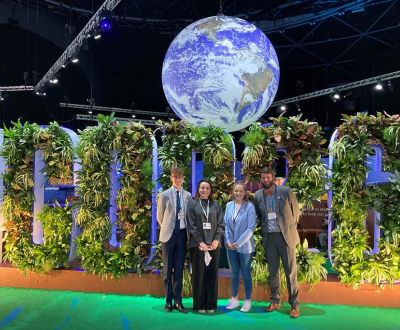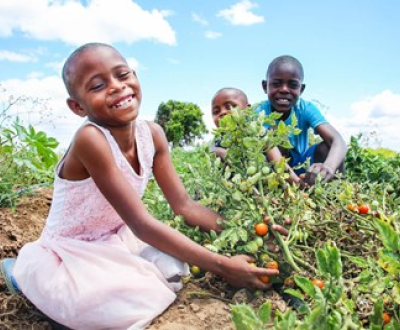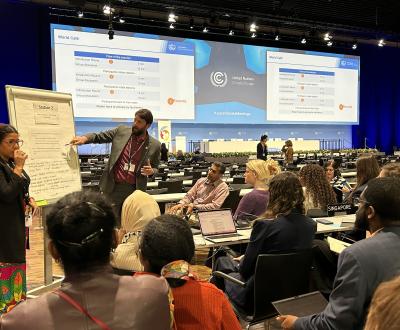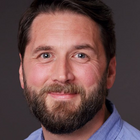
From the team
Written by Maurice Sadlier - World Vision Ireland's programmes & policy director
Follow Maurice on Twitter/X: @mauricesadlier
“Just listen to me, I am an adult - I know what I am talking about!”
As the words came out of my mouth, I knew they were wrong and understandably my 10-year-old daughter, Juno, ignored me and continued to bound up the stairs. Listening doesn’t come easy to the best of us, and as adults we seem to particularly struggle with listening to children and young people. Perhaps it comes from years of conditioning; I clearly recall hearing the phrase “children should be seen and not heard” when I was a child. That’s not how it should be, and I’ve spent a large amount of time over the past few weeks advocating for a change in this thinking and specifically, to include children and young people’s participation in the latest round of climate negotiations.
After a COVID-19-induced hiatus, which resulted in no climate negotiations take place in 2020, the UN Climate Change subsidiary bodies meetings commenced again earlier this month. For the first time ever, the meetings are taking place in a fully virtual conference. Climate negotiations are Party driven, which means as Observers we do not negotiate on behalf of Countries, rather we seek to influence outcomes, to share our experience, and to act as a watchdog among others. While Observer attendance and participation in climate negotiations can be contentious at the best of times it is particularly difficult in a virtual world. Gone are the coffee meetings, the corridor meets and the experience sharing at side events; all replaced with the world of virtual meetings, emails and WhatsApp. It would also appear it is much easier to close out Observer organisations in a virtual world – all it takes is a simple click.
Like a small, least-developed country delegation, my two colleagues and I are unable to cover all the discussions and negotiations. Looking at the agenda can also be mind boggling – should I be at the “Second session of the first meeting of the structured expert dialogue under the second periodic review" or the “Fourth meeting of the Katowice Committee of Experts on the Impacts of the Implementation of Response Measures”?! Thankfully, while this might be my time doing Climate Conferences virtually, it’s certainly not my first one conference, and with good coordination and clarity on what is important for the vulnerable children we are here to serve, we are following workstreams on climate ambition, finance, loss and damage, adaptation and action for climate empowerment.
One of the key climate responses World Vision Ireland is working on, SAUTI-Youth,
focuses on improving young people’s participation in climate governance.
Which basically means I keep a very close eye on Action for Climate Empowerment negotiations, and very loudly advocate for children to be involved. Action for Climate Empowerment, or ACE as it is known, relates to the work under Article 6 of the Convention (1992) and Article 12 of the Paris Agreement. While not as well known as other workstreams, these important articles look to empower all members of society to engage in climate action, through education, training, public awareness, public participation, public access to information, and international cooperation.
Why is it so important, you ask? Well, in 2015 when global leaders adopted the Paris Climate Agreement, they agreed to, among other things, holding global average temperature to “well below 2°C above preindustrial levels and pursuing efforts to limit the temperature increase to 1.5°C above pre-industrial levels”. If we are to achieve the goal, girls, boys, women and men everywhere need to be empowered to participate in climate action.We all need to be part of the planning for climate responses, we all need to understand what it means for our daily lives, we all need to call for international cooperation as no country can address this on their own. These are just three of the many, many reasons why we all need to be involved in climate action.
And, despite the occasional exchange with my daughter when I think it’s my voice who should be heard, I am a strong believer in the need to empower and include children as we respond to climate change. We have seen the collective action and voice of young people with the Fridays for Future action and climate strikes. We know from our work in Ireland and overseas, and from research, that when engaged, children and young people bring solutions and innovation to our responses. Not only is it meeting their fundamental right to be involved in decisions that affect their lives but it is the smart thing to do – it leads to better results.
We all need some help in engaging children and young people better – even the best intentioned of us – and the negotiations under way to adopt a Work Programme in Glasgow at COP26 later this year must consider ways to do this. The Chair’s Report, and Parties in this month’s negotiations, are calling for an in-session workshop on Children and Young People’s Participation in the Work Programme to be adopted at COP26 in Glasgow later this year. The inclusion of this in the Work Programme would be a great step in ensuring all members of society are empowered to be part of the solution to climate change. And as those of us who participated in the Second session of the first meeting of the structured expert dialogue under the second periodic review know, we need all the empowered members of society we can! Current climate mitigation plans lead to a temperature increase of at least 3°C by 2100, and that is not the world I want to leave for my children and grandchildren. As I keep saying to my daughter.
Find out more about
